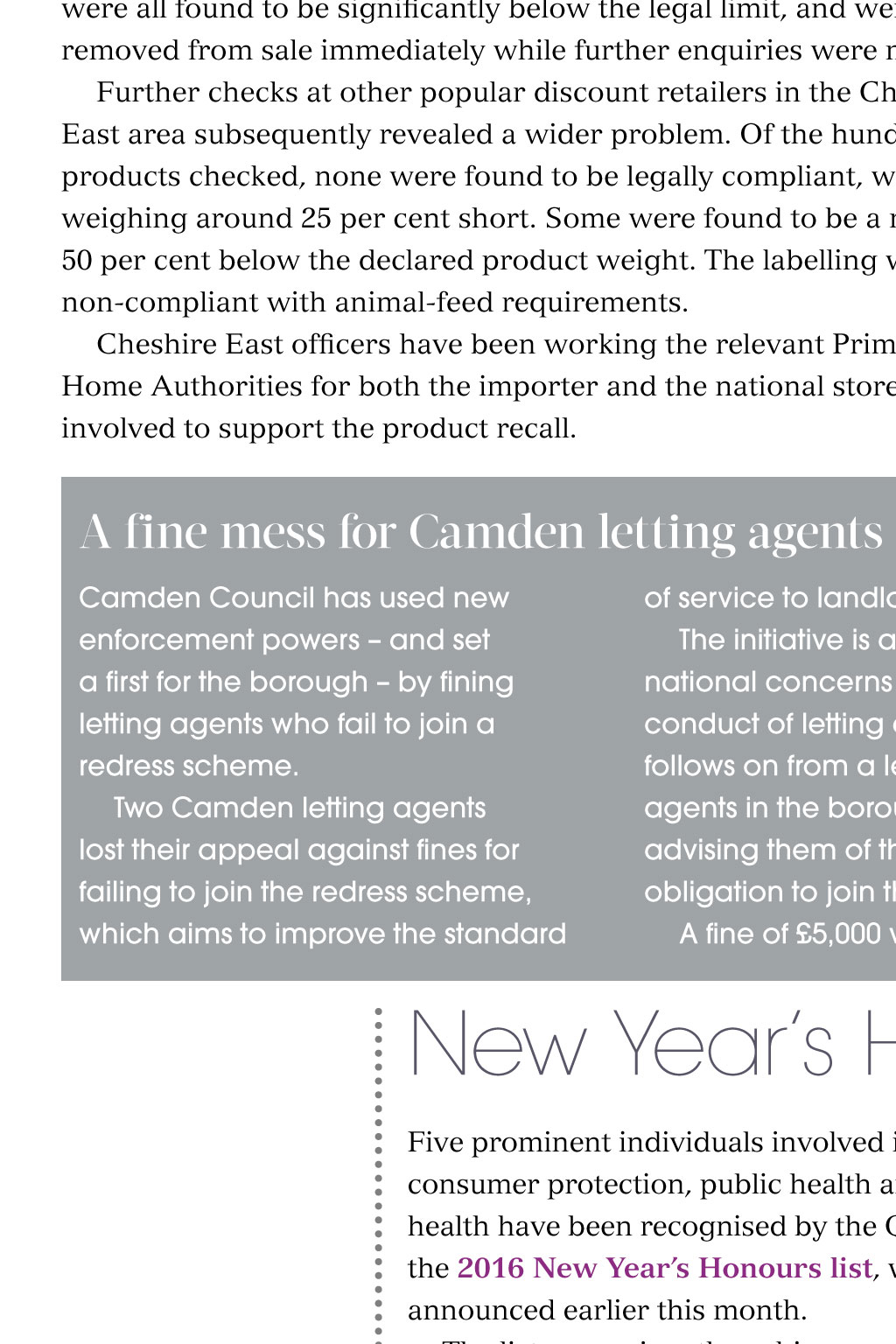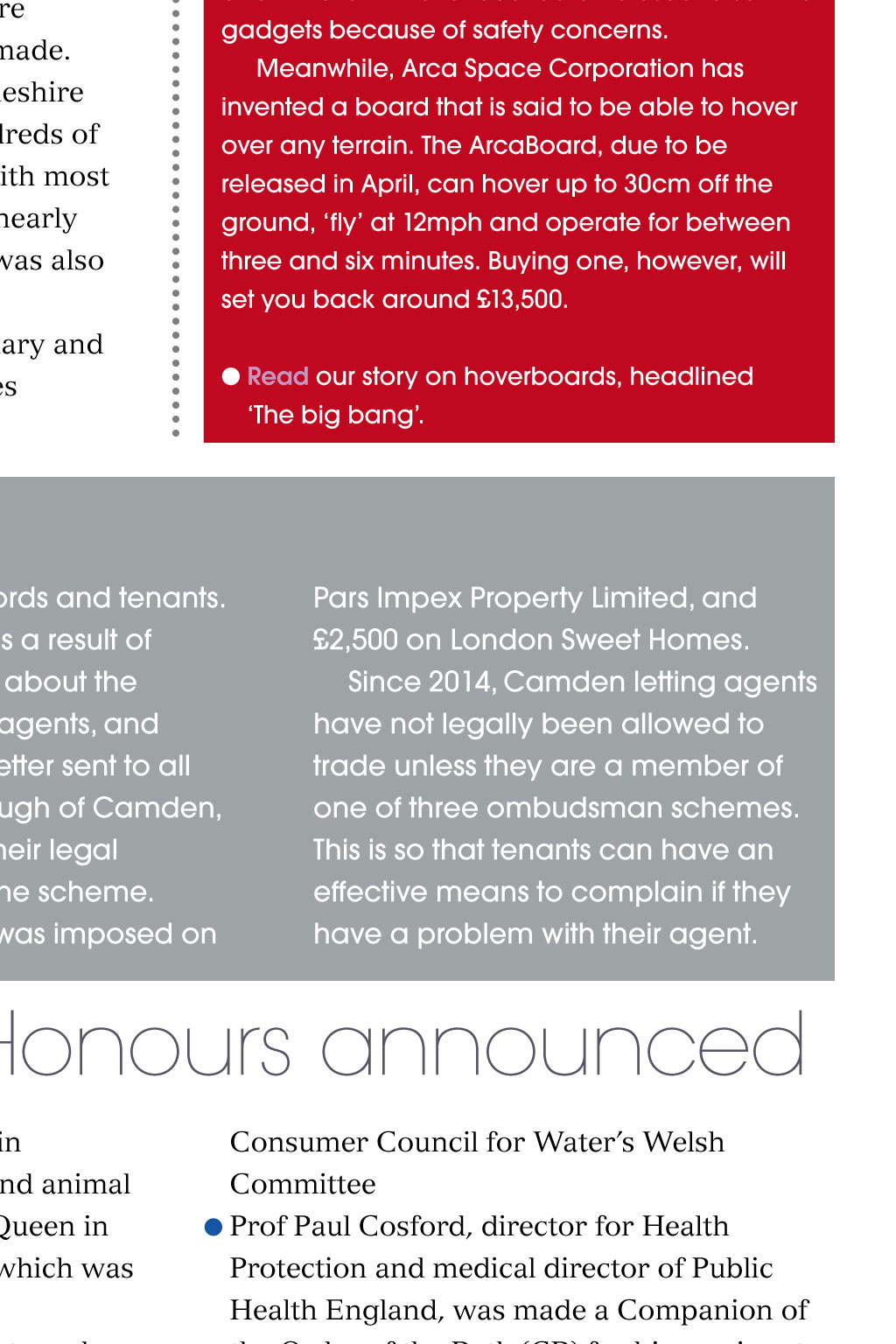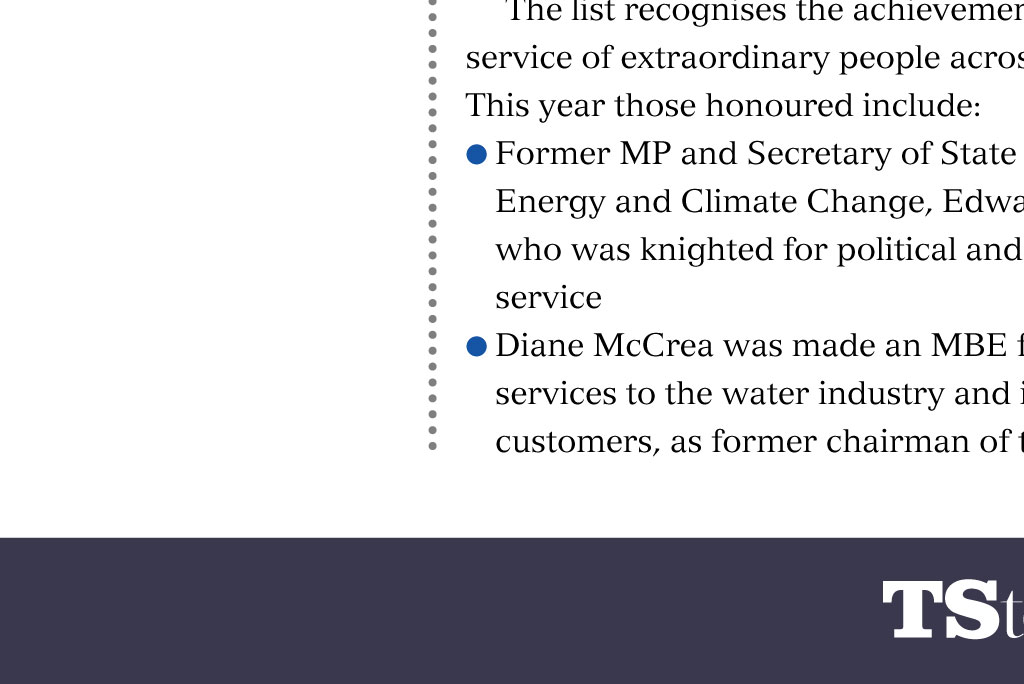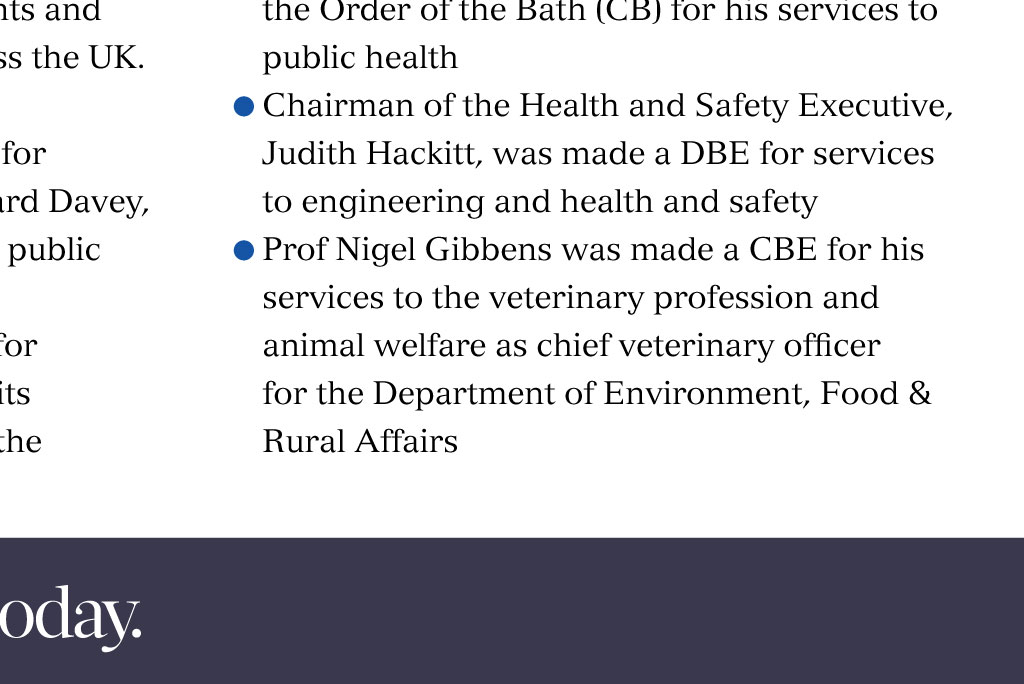




























News Four-year financial settlements for councils The Local Government Association (LGA) has welcomed the government’s financial settlement for local authorities, which for the first time allows councils to plan four years ahead. The LGA described this as ‘significant’ and ‘an important step towards the financial certainty councils need to run high-quality services’. For councils to qualify, however, they will need to publish an efficiency plan. The government is also proposing that councils have the flexibility to raise council tax by an additional two per cent, which – according to the LGA – would raise an extra £393m in 2016-2017, and would help to tackle local social care funding pressures. An increase of £1.5bn by 2019-2020 in the Better Care Fund has also been promised to ease pressures on adult social care. The news comes after the government announced in November that it is allowing local authorities to keep the rates they collect from business. This will give councils the power to cut business rates to boost growth, and give elected city-region mayors the authority to levy a business rates premium for local infrastructure projects – with the support of local business. However, the LGA identified significant challenges ahead for councils, including: general inflation; cost pressures in the care sector; increases in the number of adults and children needing support; rising levels of need; increases in demand for everyday services as the population grows; pressure on homelessness budgets; and increases in core costs, such as national insurance, the National Living Wage and pension contributions. The consultation on the provisional financial settlement is due to close at 5pm on Friday 15 January. Responses should be sent to LGFConsultation@communities.gsi.gov.uk The government is expected to seek parliamentary approval for the final 2016-17 settlement in February 2016. Anglesey Trading Standards and charity His Church have worked together to donate more than £5,000 worth of items to Môn Communities First for local food and clothing banks. In December, trading standards at Anglesey County Council donated thousands of counterfeit and unsafe items, which had been seized by the department, to His Church. The charity safely recycles or disposes of these items – including toys, batteries, shoes, clothes and electronic goods – and donates clothing and food to local food banks and homeless charities. Dave Riley, chief public protection officer at Anglesey County Council, said: ‘This is a fantastic way to securely dispose of these unsafe items. Our officers work extremely hard to remove counterfeit and unsafe products from sale, whether they are in shops, on websites or sold on social media sites. ‘Protection of the public is paramount and we are delighted to be able to make good use of dangerous goods.’ Môn Communities First is coordinating the distribution of the food and clothing, which also includes Kellogg’s cereals from the Help Give A Child A Breakfast Campaign. A pilot event was held in a nightclub in North Ayrshire in December, in a bid to highlight the dangers associated with legal highs. North Ayrshire Trading Standards officers, and partners from Police Scotland and NHS Ayrshire and Arran, came together at Pitchers Bar and Nightclub in Irvine, North Ayrshire, to highlight the dangers of legal highs – and to gather vital information. The team offered information and advice, while a questionnaire was devised both to find out whether people believed legal highs were safe, and to discover what they knew about them. The event – believed to be a Scottish first – was staged just as legislation banning the new generation of psychoactive drugs is set to be introduced. Protective services manager Scott Mckenzie said: ‘As these products are dangerous, we are working really hard gathering information, so that when the new legislation comes into force we will have the intelligence to act even more effectively. ‘Many of the “legal highs” are not legal any more. But the problem is that each drug has to be assessed individually before they can be outlawed, and manufacturers often produce new versions almost immediately after a previous form has been prohibited.’ Scott added: ‘It’s our job to find out where the legal highs are coming from. It’s about boosting intelligence and liaising with the police in readiness for further enforcement.’ The event was also an opportunity to give information to bar and door staff, as well as to engage with customers to find out what products are available locally. This information can then be shared with colleagues in the health service. Discount supermarket in the doghouse A routine inspection of a national discount supermarket by Cheshire East Trading Standards led to a recent national recall of Chinese imported dog food treats, which were found to be short on weight. The 100g declared-weight tubs containing the treats were check weighed for accuracy at the store during a routine inspection. They were all found to be significantly below the legal limit, and were removed from sale immediately while further enquiries were made. Further checks at other popular discount retailers in the Cheshire East area subsequently revealed a wider problem. Of the hundreds of products checked, none were found to be legally compliant, with most weighing around 25 per cent short. Some were found to be a nearly 50 per cent below the declared product weight. The labelling was also non-compliant with animal-feed requirements. Cheshire East officers have been working the relevant Primary and Home Authorities for both the importer and the national stores involved to support the product recall. New Year’s Honours announced Conference highlights adult protection need The Adult Protection Conference, hosted by WithScotland, was held at the University of Stirling on 18 November. Protecting the vulnerable, and equality were consistent themes throughout the day. Minister for Public Health, Maureen Watt MSP, said that adult protection was part of both public health and public protection agendas. She made reference to the need for agencies other than the police, the NHS and social workers to be involved. During the workshops, the role for trading standards – as well as for fire and rescue – was also highlighted, with some delegates already aware of the good work being done on doorstep crime. Consumer champion Which? has submitted a super-complaint to the Office of Rail and Road calling for an investigation into rail- delay refunds. The consumer body says its research has found that train companies are making it far too difficult for passengers to access the compensation to which they are entitled. Last year, more than 47 million passenger journeys were cancelled or significantly delayed. Most train passengers are entitled to compensation for delays of more than half an hour. However, a Which? survey of nearly 7,000 rail passengers found that only a third of those who may have qualified for compensation said they actually made a claim. During a ‘mystery shop’ of 102 train stations, only 18 per cent gave a full explanation of passenger rights for compensation in the event of a delay or cancellation. In 63 per cent of train stations, mystery shoppers were not told that they could request compensation in a form other than rail vouchers. Which? has now launched its new campaign called Make Rail Refunds Easier. The 12 Scams of Christmas Oxfordshire Trading Standards got into the Christmas spirit last month to help alert people to scams over the holiday period. Its officers decided to release their own Christmas song, telling people how to recognise if they were being scammed. Team member Shelley Edwards penned The 12 Scams of Christmas based on her experiences of dealing with victims of fraudsters. The song lists many of the most common approaches made by scammers, from telling people not to reveal transactions to their families, to promising to make people rich. ‘The item got a good level of coverage locally, with a slot on BBC Radio Oxford, as well as an item on the local TV channel, That’s Oxford TV,’ says Jody Kerman, trading standards operations manager, while the tweet was seen more than 2,100 times. ‘The team had great fun doing the song. It is a great way of reminding people to be on the lookout for unscrupulous people who are offering what might seem like amazing deals.’ You can listen to the song here. Food banks benefit from counterfeit goods Clubbers advised on legal highs super-complaint into delayed rail refunds launched Flight of fancy A spoof TV advert has highlighted the dangers associated with hoverboards. The ad, created by Saturday Night Live, pokes fun at the boards, which have been known to explode and cause fires. Several stores – including John Lewis, Argos and Amazon – have recalled or refused to sell the gadgets because of safety concerns. Meanwhile, Arca Space Corporation has invented a board that is said to be able to hover over any terrain. The ArcaBoard, due to be released in April, can hover up to 30cm off the ground, ‘fly’ at 12mph and operate for between three and six minutes. Buying one, however, will set you back around £13,500. l Read our story on hoverboards, headlined ‘The big bang’. A fine mess for Camden letting agents Camden Council has used new enforcement powers – and set a first for the borough – by fining letting agents who fail to join a redress scheme. Two Camden letting agents lost their appeal against fines for failing to join the redress scheme, which aims to improve the standard of service to landlords and tenants. The initiative is as a result of national concerns about the conduct of letting agents, and follows on from a letter sent to all agents in the borough of Camden, advising them of their legal obligation to join the scheme. A fine of £5,000 was imposed on Pars Impex Property Limited, and £2,500 on London Sweet Homes. Since 2014, Camden letting agents have not legally been allowed to trade unless they are a member of one of three ombudsman schemes. This is so that tenants can have an effective means to complain if they have a problem with their agent. Five prominent individuals involved in consumer protection, public health and animal health have been recognised by the Queen in the 2016 New Year’s Honours list, which was announced earlier this month. The list recognises the achievements and service of extraordinary people across the UK. This year those honoured include: l Former MP and Secretary of State for Energy and Climate Change, Edward Davey, who was knighted for political and public service l Diane McCrea was made an MBE for services to the water industry and its customers, as former chairman of the Consumer Council for Water’s Welsh Committee l Prof Paul Cosford, director for Health Protection and medical director of Public Health England, was made a Companion of the Order of the Bath (CB) for his services to public health l Chairman of the Health and Safety Executive, Judith Hackitt, was made a DBE for services to engineering and health and safety l Prof Nigel Gibbens was made a CBE for his services to the veterinary profession and animal welfare as chief veterinary officer for the Department of Environment, Food & Rural Affairs sickmoo / shutterstock AdAm Gilchrist / shutterstock